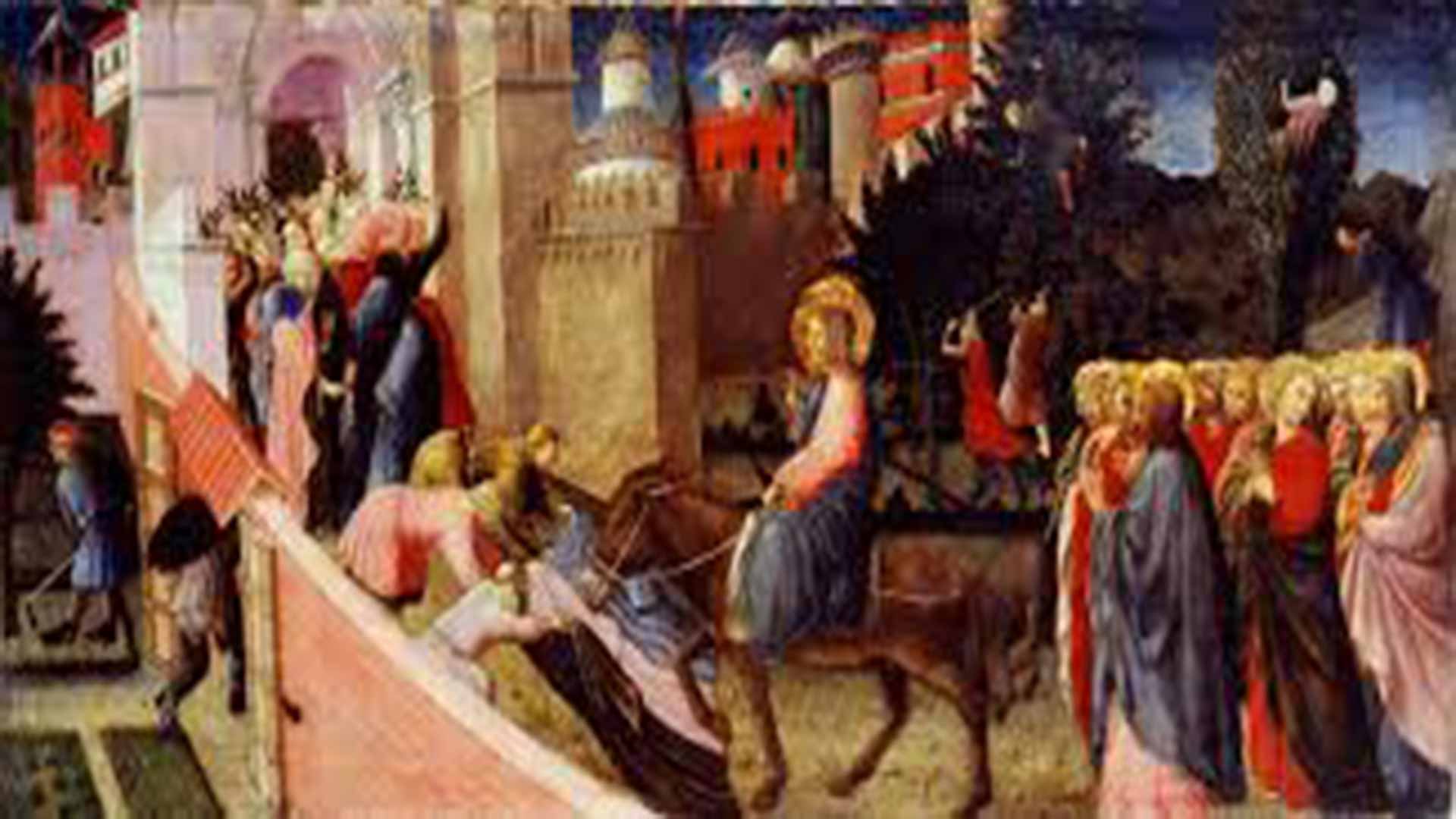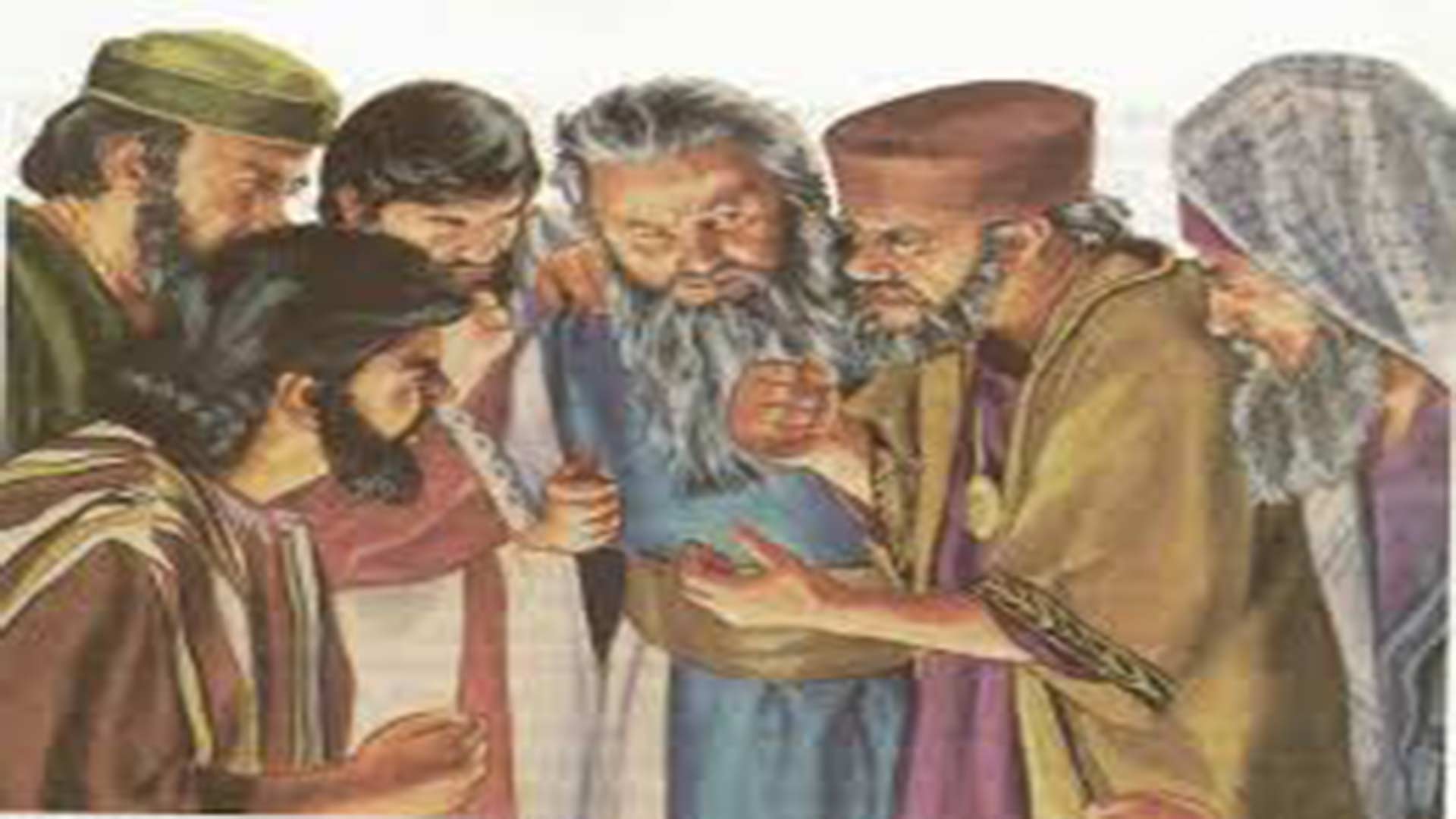Our Lord's saga of pain and suffering begins
LENT 2020 – Day 40
Readings: Is 50: 4-7; Ps 21: 8-9, 17, 18a, 19-20, 23-24; Phil 2: 6-11; Mt 26: 14-27, 66
The first two readings are a prologue to our Lord’s saga of pain and suffering described in the Gospel passage. Eight hundred years before Christ, prophet Isaiah anticipated the happenings on Calvary; and a millennium before Him, His ancestor King David wrote the haunting cry that the Christ crucified would utter: “My God, my God, why hast Thou forsaken me?” St Paul highlights the fact that the Son of God speaks here as “a servant, born in the likeness of men.” He underscores the humility and love with which our Lord looked at His earthly mission.
Today is commonly known as “Palm Sunday”. The evangelists have passages fit to commemorate this Sunday. Yet, the overarching theme of our Lord’s Passion takes precedence on this day, alternatively called “Passion Sunday”.
St Matthew portrays more than the story of a single day; he gives an overview of the first six days of the Holy Week. Accordingly, the passage comprises the entry of Jesus into Jerusalem on Sunday; His Passion on Thursday and finally His Death on that fateful Friday. However, in real time, Jesus’ last week on earth was packed with many other events as well. All together they precipitated the final meltdown, which soon became a watershed in world history.
With St Matthew as our guide
Let’s walk with St Matthew to see the places that Jesus visited, and why. Let’s also look at the personages that Jesus encountered on the way. They make up an eloquent portrait gallery in which you and I are sure to meet our human types.
When Jesus entered Jerusalem, He met an ecstatic lot. They spread garments and tree branches on the road, and shouted “Hosanna to the Son of David!” The city was stirred with the visit of “the prophet Jesus from Nazareth of Galilee”. Was this for real? Had Jerusalem accepted Him as their long-awaited Messiah? Well, this sudden switch of sentiments, this picture of innocence and goodness, seemed too good to be true. Thanks to human chemistry, an equal and opposite reaction gets underway in the minds and hearts of others following Jesus’ moves.
If the cheering multitude was naïve in its enthusiasm, so were Jesus’ disciples in their lack of fervour. On Thursday, they simply followed His instructions and arranged the Upper Room to hold their supper. Perhaps to them it was just another yearly feast. Did they understand what Jesus meant by saying that He would meet them again only “in my Father’s kingdom”? Ironically, only Judas Iscariot perhaps did, for he’d already conspired to sell his Lord for thirty pieces of silver.
That Wednesday night Jesus went out to the Mount of Olives to pray. He knew that His time was at hand. And knowing His sheep, too, He foretold that striking the shepherd would scatter them. To them it meant very little. Humans like us, lost in their own preoccupations, Peter, James and John fell asleep at three crucial moments. Curiously, here we see the human facet of Jesus too. Left to fend for Himself, he cried to His Father to let the cup pass if possible.
However, the human side of Jesus was soon superimposed with His superhuman dignity. When the kiss of betrayal brought in the hour, Jesus addressed Judas charitably as “friend”. And when someone cut off the ear of a soldier who had come to arrest Him, Jesus healed him instantly. What might the soldier have felt at that moment? What did he do thereafter: convert or continue his evil doing? We do not know. What we know, meanwhile, is that the disciples, the greatest beneficiaries of the magnanimous Jesus, took to their heels. What would we have done? And what do we do in the circumstances of our life today?
Next we meet old Caiaphas, yet another picture of human viciousness. He entertained a string of false testimonies. Then came the tipping point. Two witnesses reported that Jesus had declared that He could destroy the temple and rebuild it in three days. It no doubt crossed Caiaphas mind that Jesus was the Messiah but he didn't hail Him. Instead, he turned the tables on Him, crying “Blasphemy”, for which death was the punishment.
Jesus was next in the presence of Pilate, the governor. Here was a typical political figure playing to the gallery. He washed his hands and said, “I am innocent of this righteous man’s blood.” Why did he leave it to the populace to decide when he should have called a spade a spade? These are the undecided and/or the unconcerned who do everything only to save their skin…
At the praetorium, the stage was set for the final tragic act. Here we meet mockers. They stripped our Lord, and in disdain hung a scarlet robe over his body and a crown of thorns on his head. For a change, a man called Simon met Jesus as He wended his way to Calvary. Although they ordered him to help Jesus carry the Cross, he most likely did it with a measure of sympathy for the suffering Lord. Can we, like that Cyrenian, offer up our little sufferings as a humble participation in the carrying of the Cross?
At Calvary the ‘good thief’ said a good word to the dying Lord; he instantly merited Paradise. This goes to show that it’s never too late to convert. However, it’s better to be safe rather than sorry; we shouldn’t test God, as did Judas Iscariot, who stupidly lost his life in a shameful death.
After Jesus had died on the Cross, an old disciple, Joseph of Arimathea took charge of His sacred body. He wrapped the body in a clean linen shroud and laid it in his own new tomb. Like him, we too can help out, by rendering our services to the Bride of Christ. After all, the Church, which our Lord rebuilt on the third day, is the best repository of his memory. The Church also holds His three best gifts for humankind: first, the Holy Mass, held there every day as an unbloody enactment of the Holy Sacrifice on Calvary; second, the Priesthood, which He instituted as a sacrament of the New Covenant; and third, the commandment of love, a supreme example of how Jesus perfected the old law.
Our Lord Jesus Christ thus left us an invaluable heritage whereby we can become worthy candidates for eternal salvation. We will thereby vindicate His coming to the world.
When man was wolf to God
LENT 2020 - Day 39
Readings: Ezek 37: 21-28; Ps Jer 31: 10, 11-12ab, 13; Jn 11: 45-57
Why does the Lord God say "I will make them one nation"? Israel started off as one nation comprising twelve tribes descending from Jacob (whom God renamed Israel). Later, when the people desired a king like the nations around them, God chose Saul as the first king of Israel. However, as a result of Saul's sinful life his family lost the right to reign. Then God chose David to succeed him but only Judah accepted the choice; the other tribes of Israel followed Saul’s son Ishbosheth. A war ensued.
David, the stronger of the two, worked hard to reunite the tribes. At long last, they welcomed him as king of “all Israel and Judah”. His son Solomon followed suit, until a day dawned when he began disobeying God. When his son Rehoboam failed to keep the kingdom united, a new split ensued. God chose Jeroboam, a servant of Solomon, to head the northern kingdom. Eventually, this kingdom fell to the Assyrians the the other to the Babylonians.
This is the time when the prophet Ezekiel lived. Seeing that His people had gone astray, God could well have withdrawn and pronounced national destruction. But He was faithful to His covenant and loved His people. So He made known a new blueprint for Israel: it would be a single country under a revived Davidic dynasty, a united people, safe under the protective umbrella of the Lord God. The only condition was that the people "shall not defile themselves any more with their idols and their detestable things and with any of their transgressions." Cleansed of their defilement, they would be a new people.
We know that before God sent Jesus to the world, He had brought back the captives from Babylon but soon thereafter the country under the heavy hand of the Roman administration. Why God allowed this is a mystery. Did the sins of certain people lead to this fate, or was it God waiting to unfold the grand history of our redemption? This role the Father had assigned to Jesus. But, alas, His countrymen twisted His intentions and misinterpreted His works.
The astounding miracle of raising Lazarus from the dead is a case in point. Soon after Jesus had worked that wonder, many of the witnesses reported it to the Pharisees. So the chief priests and the Pharisees gathered the council. They deliberated that if the people began to believe in Him, the Romans would come and destroy both the holy place and their nation. So they decided to put Him to death.
Very significantly, the chief priest Caiaphas proposed that Jesus should die "not for the nation only but to gather into one the children of God who are scattered abroad." Caiaphas thus unwittingly prophesied the investiture of Jesus as the High Priest of the New Alliance, and became the last of the high priests of the Old Covenant. No doubt, great was the price that Jesus paid: he sealed it with His own blood.
This is the beginning of the end of Jesus' life on earth. He no longer went about openly among the Jews but into the wilderness, to a town called Ephraim, where he stayed with his disciples. Since the Passover was at hand, many wondered if Jesus too would go to Jerusalem for the feast. He did go... and, lo and behold, he had a reception fit for a king. Indeed a dramatic turn of events. But the question is: will He be crowned? Or will He be king just for a day?
O flickering human mind! O false promise from glib cheerleaders! It is easier to believe that these cheers will soon turn to jeers. And so it was. The chief priests and the Pharisees had already given orders that any one knew where Jesus was should let them know, so that they might arrest Him.... Homo homini lupus? Not just. Man was indeed wolf to God.

